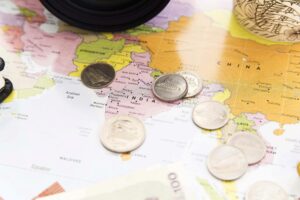I am really not a big proponent of credit cards. I think they get people into more trouble than is worth it, and most people don’t have the self control needed to not cause themselves big financial issues with their credit cards. Freelance writer, Nancy Evans, disagrees, and has shared this guest post on why credit cards can be beneficial for frugal people, and how to use them smartly so you don’t get into trouble with them.
Just about every adult has at least one credit card. And for many, credit cards are an absolute necessity. Even if these people don’t pull out plastic on a daily basis, credit can tie them over between paychecks and provide funds in an emergency.
Although credit cards receive a lot of flack, they are crucial to establishing a credit history, and if you need to rebuild credit, they’re also beneficial in this capacity. But there is no denying the dangers of credit cards.
Using credit cards can get expensive, and if you’re all about thrifty living, it’s best to minimize money spent on interest. There are, however, ways to keep costs to a minimum.
1. Don’t view a credit card as extra money. If you have thousands of dollars in available credit, it may be tempting to whip out your credit card and treat yourself to something special. There is nothing wrong with the occasional indulgence. But if you use credit on a regular basis for things that you don’t need, you may fall deep into debt. A credit card is not a debit card or extra money – it is essentially a high-interest loan that must be repaid.
2. Pay off your credit card in full each month. Carrying a balance from month-to-month is a quick way to fall into debt. And the more debt you have, the more you will pay in interest. Only use a credit card if you are able to pay off the balance once the statement arrives. If you develop a routine of paying balances in full, you may never pay a dime in interest. Of course, for this method to work, you need to give yourself a monthly spending budget and stick to this budget.
3. Check into balance transfer credit card offers. Maybe you have a credit card with a high balance. If you are making payments each month, but feel that your balance isn’t dropping fast enough, consider transferring it to another card.
Several balance transfer credit cards offers offer a 0% introductory rate for 12 to 18 months, plus other perks like cash back rewards. A zero percent interest card can jump start your debt repayment efforts, and with cash back, you can earn money on qualifying purchases.
4. Pay your credit card on time. Sending a late payment is a fast way to increase how much you owe. Late fees average about $35, and creditors add this amount to your balance. And if you’re enjoying a 0% introductory rate, lateness may prompt your creditor to cancel the low rate and charge the standard APR.
Being thrifty with credit cards is all about responsible use. Plenty of good can come from credit cards. In addition to cash back offers, you can earn reward points or miles toward travel and other merchandise. A credit card may not be your best friends, but it’s certainly not your enemy.
See my disclaimer.




